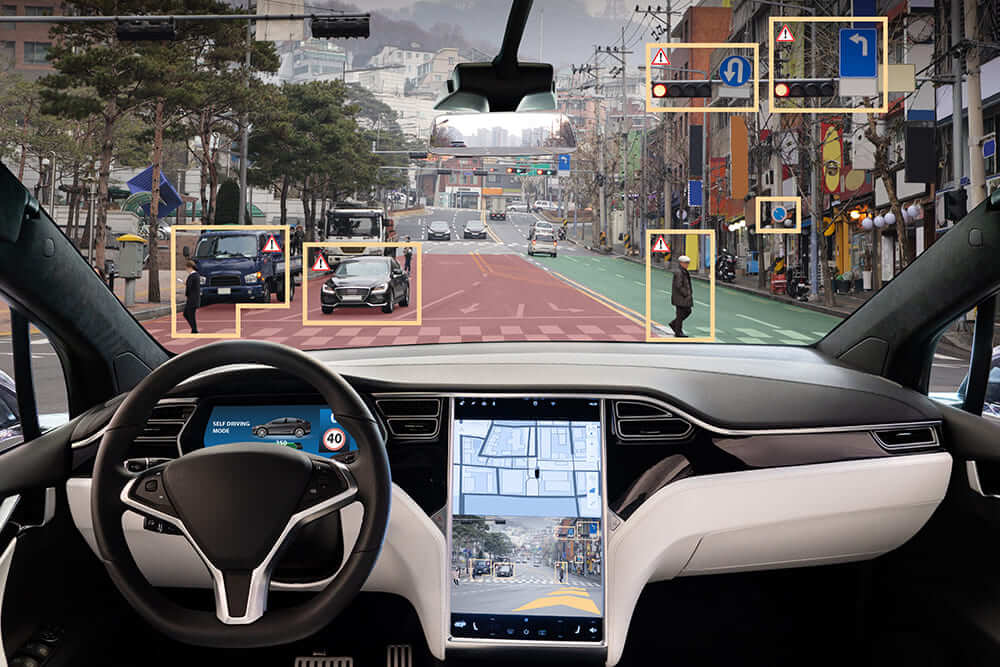Comments
- No comments found

Self-driving cars and machine learning have emerged as groundbreaking technologies revolutionizing the automotive industry.
With remarkable advancements in artificial intelligence (AI) and data analytics, self-driving cars have made significant strides, promising safer and more efficient transportation. This article explores the intersection of self-driving cars and machine learning, delving into key concepts, benefits, challenges, and future prospects of these cutting-edge technologies.
In the realm of transportation, self-driving cars, also known as autonomous vehicles, are equipped with advanced sensors, cameras, and onboard computers capable of navigating and making decisions without human intervention. These vehicles rely on a fusion of sensors, such as lidar, radar, and cameras, to perceive their surroundings. Through machine learning algorithms, the sensory data collected is interpreted and processed, enabling the vehicle to make informed decisions.
Machine learning plays a pivotal role in the development and operation of self-driving cars. By analyzing massive amounts of data, machine learning algorithms can identify patterns, make predictions, and adapt to changing driving conditions. These algorithms are trained on diverse datasets consisting of various driving scenarios, allowing them to recognize objects, understand traffic patterns, and respond to complex driving situations.

One of the benefits of self-driving cars lies in their potential to reduce accidents caused by human error. Machine learning algorithms enable vehicles to analyze real-time data and respond swiftly, significantly enhancing safety on the roads.
In addition, self-driving cars have the potential to optimize traffic flow, reduce congestion, and enhance fuel efficiency. By leveraging machine learning algorithms, autonomous vehicles can navigate through intricate traffic scenarios, making informed decisions to optimize travel routes and minimize idle time.
Self-driving cars hold the promise of transforming mobility for individuals with limited mobility or disabilities. By eliminating the need for human drivers, autonomous vehicles can provide transportation options to those who may face challenges accessing traditional means of transportation.
The widespread adoption of self-driving cars necessitates the development of comprehensive regulations and legal frameworks to ensure safety, liability, and ethical considerations are adequately addressed.
The successful deployment of self-driving cars relies on the presence of robust and intelligent infrastructure, including smart roads, communication networks, and reliable mapping systems. Building such infrastructure presents significant challenges that need to be addressed.
Ethical Decision Making: Autonomous vehicles face complex ethical dilemmas, such as determining how to respond in potential accident scenarios. Resolving these ethical challenges requires careful consideration and input from various stakeholders.

The future of self-driving cars and machine learning is highly promising. As technology continues to advance, we can anticipate significant developments in the following areas:
Machine learning algorithms will further improve the safety capabilities of self-driving cars, enabling them to predict and respond to potential hazards with even greater precision.
The development of intelligent infrastructure will play a critical role in the seamless integration and operation of self-driving cars. This includes the establishment of smart roads, robust communication networks, and accurate mapping systems.
Stakeholders will collaborate to establish comprehensive ethical guidelines for self-driving cars, addressing complex decision-making scenarios and ensuring public trust in this transformative technology.
Self-driving cars, empowered by machine learning, are poised to revolutionize transportation as we know it. With their potential to enhance safety, improve efficiency, and increase accessibility, these autonomous vehicles offer a glimpse into a future where our roads are safer and transportation is more efficient. However, addressing regulatory challenges, developing intelligent infrastructure, and resolving ethical dilemmas will be crucial in realizing the full potential of self-driving cars and machine learning. As technology continues to evolve, we can look forward to a future where self-driving cars redefine the way we travel.
Naveen is the Founder and CEO of Allerin, a software solutions provider that delivers innovative and agile solutions that enable to automate, inspire and impress. He is a seasoned professional with more than 20 years of experience, with extensive experience in customizing open source products for cost optimizations of large scale IT deployment. He is currently working on Internet of Things solutions with Big Data Analytics. Naveen completed his programming qualifications in various Indian institutes.
Leave your comments
Post comment as a guest